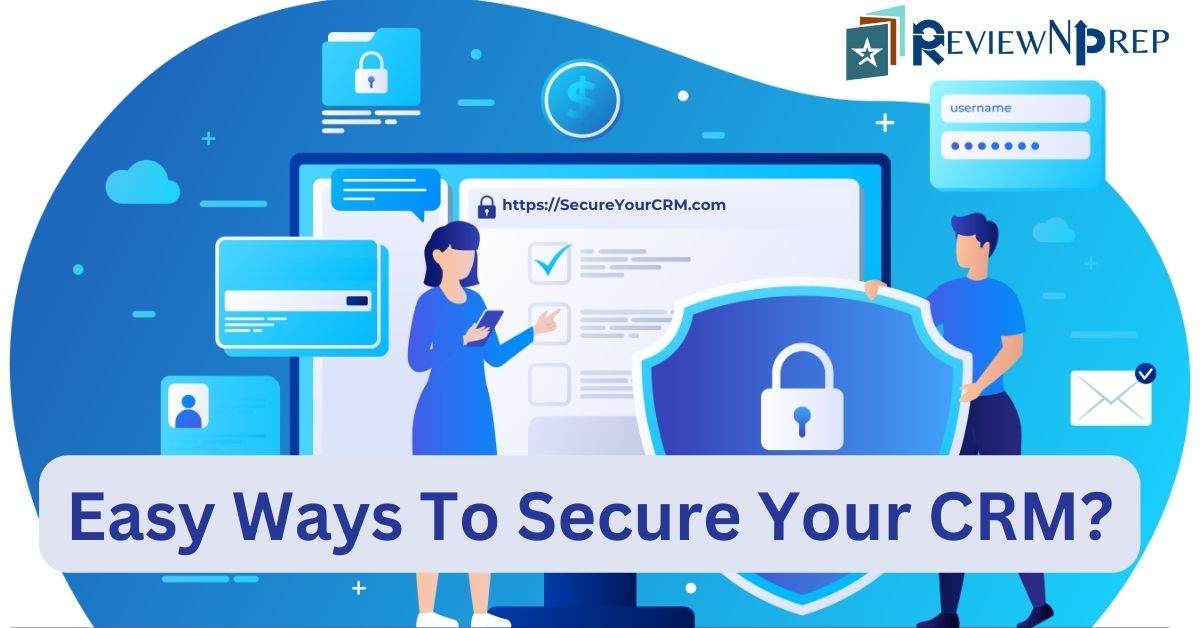
Key Takeaways:
- Discover how CRM systems enhance data security for accounting professionals.
- Learn about the key features that ensure client information remains confidential.
- Understand the benefits CRM platforms bring to the compliance landscape.
Introduction to CRM Systems for Accountants
In a digitally advancing world, accountants face increased pressure to protect sensitive client information while delivering exceptional service. Customer Relationship Management (CRM) systems are becoming indispensable in this quest. These systems provide a centralized platform for managing client interactions while offering stringent security measures to protect data. As accountants are bound by legal and ethical mandates to maintain confidentiality, utilizing a CRM to manage data effortlessly while maintaining compliance regarding accountant-client privilege becomes crucial. A CRM not only simplifies workflows but acts as a safeguard against unauthorized data access.
Protecting Client Information with CRM
Data breaches can have disastrous consequences for firms and clients, making robust security features non-negotiable for any CRM system. Encryption is a cornerstone of CRM security, converting sensitive client data into complex codes that prevent unauthorized access. Secure access controls protect this information by regulating who can view and modify data. For accountants, this means peace of mind, knowing state-of-the-art protections secure client data. The layers of security provided ensure that data breaches are not only hard to execute but also easier to detect and mitigate rapidly. These features are more important than ever in an era of increasing cyber threats.
Compliance and Legal Obligations
The legal landscape for accountants is filled with stringent data protection laws, including regulations like the General Data Protection Regulation (GDPR) and the Health Insurance Portability and Accountability Act (HIPAA). CRM systems play a pivotal role in helping accountants fulfill these obligations by embedding features that precisely track data handling practices. Automated compliance checks ensure that all operations align with current regulations, significantly reducing the risk of costly fines and reputational damage. Moreover, audit trails provided by CRMs document every interaction with data, ensuring a transparent and accountable data management process.
Data Accessibility and User Permissions
Maintaining strict control over who accesses sensitive client data is crucial. CRM systems offer customizable user permissions, allowing firms to delineate access based on roles and responsibilities. This granular level of control ensures that sensitive information is only available to employees who truly need it, thereby minimizing the risk of internal breaches. Permission settings can be adjusted dynamically to accommodate changes in team structure, ensuring ongoing security without compromising accessibility for authorized personnel. A culture of accountability is fostered when employees are aware that access is monitored and regulated.
Real-Time Data Monitoring
One of the standout features of modern CRM systems is real-time data monitoring, a crucial component for maintaining compliance and ensuring client data security. Real-time monitoring allows firms to keep a vigilant watch over all data interactions. The system instantly alerts designated personnel if any anomalies or suspicious activities occur. This immediacy enables swift responses to potential security threats, allowing for prompt protective measures. Real-time data tracking prevents breaches and enhances audit processes, making them more efficient and effective.
Integration with Other Tools for Enhanced Security
Integrating CRM systems with advanced security tools such as firewalls and antivirus software is a strategic approach to building a robust security environment. This integration creates a comprehensive defense mechanism that addresses multiple facets of data security. Such amalgamation is vital in defending against multifaceted cyber threats that continue to evolve. By embedding CRMs within a broader IT security framework, firms can bolster their protection against intrusions, enhance data integrity, and ensure comprehensive oversight of data flows. This unified approach significantly mitigates the risk of potential vulnerabilities.
Benefits of Integration
Accountants stand to gain substantially from integration, as it simplifies the task of managing multiple security layers and aligns them into a cohesive strategy. Clients gain increased confidence in the safety of their personal information, fostering trust and enhancing the client-accountant relationship. Furthermore, integration allows for centralized security management, simplifying updates and maintenance critical to sustaining high-level security over time.
Training and Best Practices for CRM Use
Regular and intensive training is essential for maximizing the security potential of CRM systems. Firms must prioritize educating their staff on the latest data protection techniques, emphasizing the importance of strong passwords, awareness of spear-phishing attacks, and securing client data. Best practices also include establishing clear guidelines for data access and setting up regular security audits. These measures ensure that employees are well-prepared to utilize the CRM’s features effectively while safeguarding sensitive client information. A proactive approach to education and training builds a workplace culture that values data protection and fortifies the firm against inadvertent human errors.
Future of CRM in Accounting Security
The horizon is bright for CRM technology in the accounting industry, with continued advancements promising even greater security enhancements. Cutting-edge developments in data protection trends, such as AI-driven threat detection and blockchain encryption methods, are revolutionizing the security landscape. These technologies offer unparalleled capabilities in identifying and neutralizing potential threats before they become breaches. As the field of CRM evolves, accountants can expect to see systems that not only adapt to existing threats but anticipate future vulnerabilities, offering unprecedented protection to their client’s data.
Innovations to Watch
Innovations like machine learning, which can predict security threats based on data patterns, and blockchain technology, which provides unbreakable data encryption, are poised to redefine security standards. These emerging solutions promise a new era in data protection, where accountants can more effectively shield themselves and their clients from ever-evolving cyber risks.
Conclusion
As accountants continue to balance data protection and operational efficiency, CRM systems are invaluable allies. By leveraging these systems’ powerful security features and seamlessly integrating them into a broader security strategy, accountants can ensure client data remains protected, compliant, and accessible to only those with verified credentials. The reassurance provided by a carefully implemented CRM system builds stronger client relationships, allowing accountants to focus on delivering insightful financial services with confidence.
